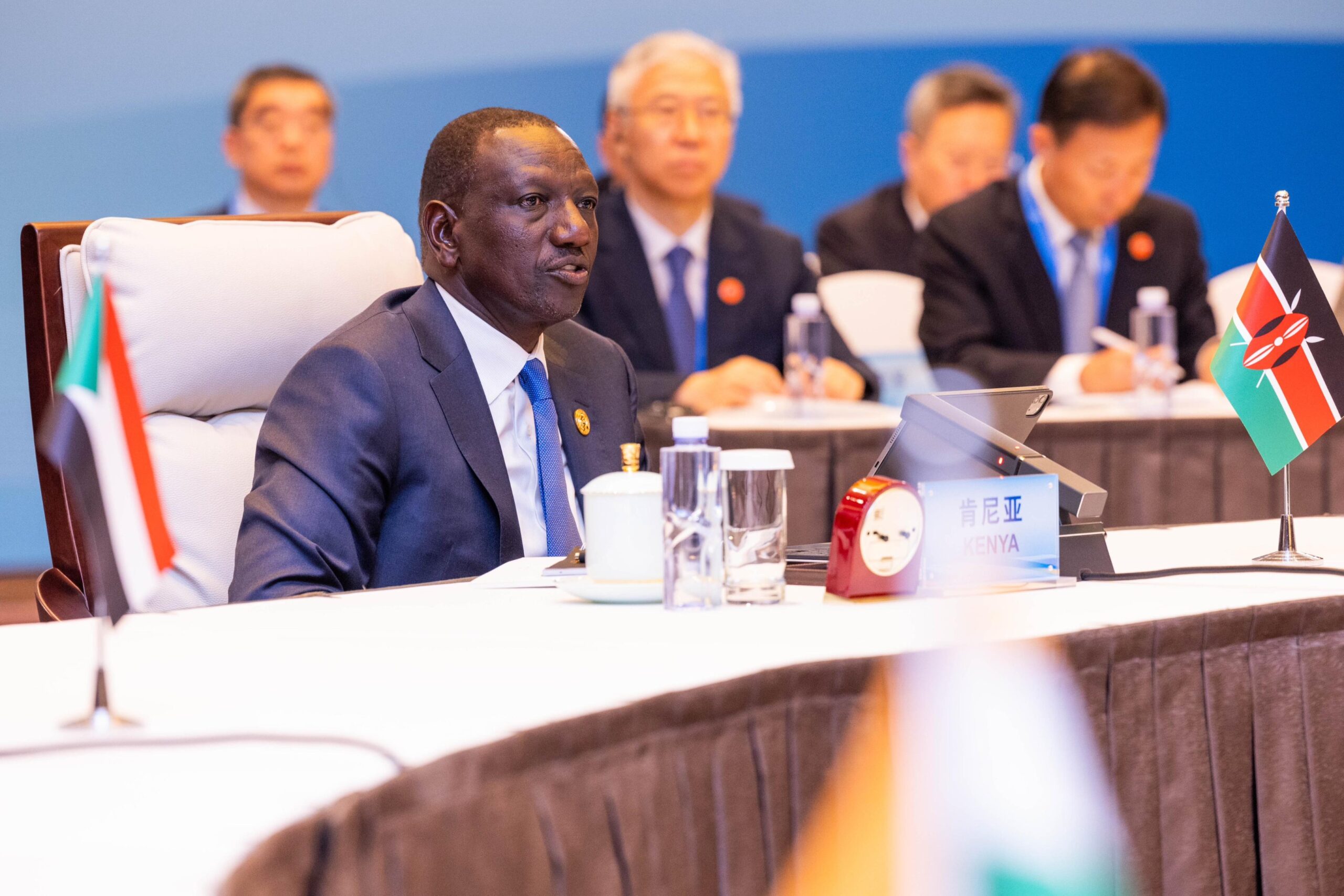By THE DISPATCH DIGITAL REPORTER
Giving the clearest indication that he has put the recent Gen Z-led protests behind him, President William Ruto has resumed his international flights honouring various invitations to foreign counties. In a week marked by intense diplomatic activities, President Ruto of Kenya has embarked on a strategic international journey, visiting China and planning to visit Germany next week. These visits come at a critical juncture in his presidency, following a period of significant domestic unrest driven by the youth-led Gen Z protests. These developments underscore the delicate balance Ruto must strike between maintaining his international standing and addressing pressing domestic issues, which some observers believe he is not taking seriously enough.
Economic Diplomacy in China
President Ruto’s visit to China was far more than a routine diplomatic engagement; it was a crucial mission with significant economic implications for Kenya. With the country still reeling from the impact of widespread protests, the visit was seen as an opportunity for Ruto to secure much-needed financial support for stalled infrastructure projects. The timing of this visit, soon after the protests had died out, suggests that Ruto felt a window of opportunity had opened for him to engage in high-stakes international diplomacy without appearing disconnected from domestic concerns or risking to lose is [pesidency, which was secured with a deal with Raila Odinga, the outgoing OFM arty Leader.
During his visit, Ruto participated in the 9th Forum on China-Africa Cooperation (FOCAC) Summit, where he sought to strengthen bilateral ties and secure investment in Kenya’s infrastructure, healthcare, and technology sectors. The potential agreements discussed included extending the Standard Gauge Railway (SGR) and completing the Nairobi Northern Bypass, among other infrastructure projects. These initiatives align with Kenya’s Bottom-Up Economic Transformation Agenda, which aims to create job opportunities for the country’s youth and women—a key concern in light of the recent protests.
Ruto’s agenda also included a meeting with Chinese President Xi Jinping, where the two leaders discussed the future of Kenya-China relations, particularly within the framework of China’s Belt and Road Initiative (BRI). Kenya’s participation in BRI has already resulted in transformative projects such as the SGR and the Nairobi Expressway, and the visit is expected to pave the way for further cooperation, including the establishment of a pharmaceutical park and the negotiation of a Preferential Trade Agreement (PTA).
Strengthening European Ties in Germany
Following his engagements in China, President Ruto’s visit to Germany marks another significant step in his foreign policy strategy. Scheduled to attend the Citizens’ Festival in Berlin, Ruto will be the first non-European leader to participate in this event, which celebrates volunteerism and civil society engagement. His presence as a special guest highlights Kenya’s growing international profile and the strategic importance Ruto places on strengthening ties with European nations.
Germany, a leader in technology, renewable energy, and development aid, offers Kenya valuable opportunities for collaboration. During his visit, Ruto is expected to advocate for partnerships that could lead to technological transfers and sustainable development projects, which are crucial for Kenya’s long-term economic growth. This visit, much like his trip to China, is part of a broader strategy to diversify Kenya’s international partnerships and reduce its reliance on any single foreign power.
The timing of these international engagements, coming on the heels of the Gen Z protests, is significant. The protests, driven by economic discontent and a lack of opportunities for the youth, forced Ruto to temporarily focus on domestic issues. His ability to resume international travel suggests that the protests have either subsided or been managed sufficiently to allow him to shift focus to foreign affairs. However, critics argue that these trips may be perceived as prioritising international prestige over addressing immediate domestic challenges.
The juxtaposition of Ruto’s international engagements with the recent domestic unrest raises important questions about the balance between maintaining national stability and enhancing international prestige. While some critics argue that Ruto’s frequent travels during times of domestic crisis reflect a misplaced focus on global image, his supporters contend that these trips are essential for securing the economic and technological partnerships necessary for Kenya’s long-term stability and growth.
From a strategic perspective, Ruto’s international engagements can be seen as a calculated effort to bolster his administration’s image both at home and abroad. The potential economic benefits from these trips, if realised, could serve as a counter-narrative to domestic critics, demonstrating that his foreign policy efforts are directly linked to addressing the root causes of discontent within Kenya.
President Ruto’s journey from China to Germany, set against the backdrop of domestic unrest, encapsulates the complex challenges of modern African leadership. On one hand, there is the urgent need to address the grievances of a young and increasingly vocal population. On the other, there is the strategic imperative to engage internationally, securing partnerships that can drive economic development and technological advancement.
As Ruto navigates these challenges, his ability to translate international successes into tangible domestic benefits will be key to his political survival. Whether these diplomatic efforts will provide a lasting solution to Kenya’s domestic issues or merely offer a temporary reprieve remains to be seen. However, what is clear is that Ruto’s international engagements will continue to play a crucial role in shaping the future of his presidency and the country at large.
